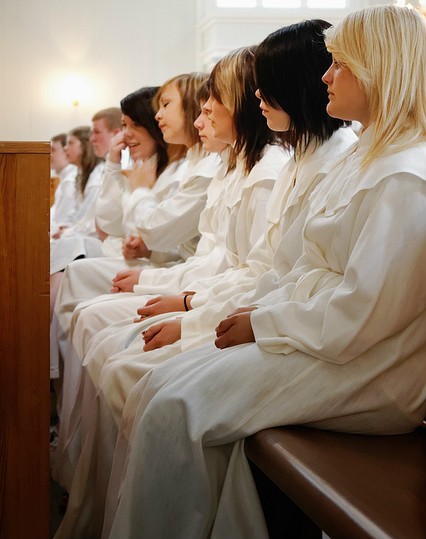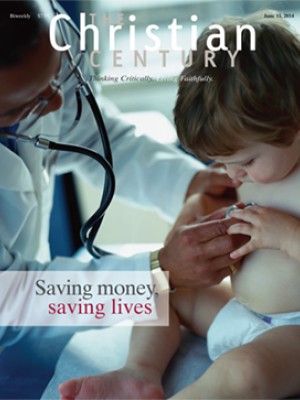Faith confirmed
When we were expecting our first grandchild, a friend put his arm around my shoulder and solemnly said, “John, you are about to experience the only truly free lunch.” He was right.
From the vantage point of years, we grandparents understand that what we thought were crises were not so serious after all and that whether or not the children ate their Brussels sprouts had nothing to do with the kind of people they turned out to be. Nor am I the first to observe that grandchildren grow quickly. One day you’re reading a toddler a story and the next thing you know she’s looking you in the eye and asking if you remember the Vietnam War.
It was with this sense of time passing that our family gathered recently for the confirmation of our granddaughter Eleanor. At the beginning of her confirmation class, her father had told me that Eleanor wasn’t certain that she wanted to join the church; in fact, she wasn’t certain that she believed in God. I assured him that her concerns were typical and not inappropriate. After eight months of weekly classes, retreats, and mission trips, however, Eleanor told me that she loved her confirmation class experience and had decided to declare her faith and become a member of the congregation.
Read our latest issue or browse back issues.
I thought about my own confirmation experience, when eight of us seventh graders were supposed to memorize the answers to 107 catechetical questions. Some of them are doozies. Question 4: “What is God?” Answer: “God is Spirit, infinite, eternal, and unchangeable, in his being, wisdom, power, holiness, justice, goodness, and truth.” The churchmen who drafted the Westminster Confession and the Larger and Shorter Catechisms were confident that the reality of God could be nailed down in language. I’m not certain what the experience did for me, but I’ve always been glad to remember the answer to the first question: “Man’s chief end is to glorify God and to enjoy him forever.”
After Eleanor’s confirmation I went home and picked up James Fowler’s Becoming Adult, Becoming Christian. Fowler says adult faith happens as a result of developing, among other things, “a deep habitus, a pervasive orientation to the divine initiative and the universality in love.”
In Eleanor’s class, the pastor asked each of the 27 members to write a statement of faith (something that would never have occurred in my day).
Eleanor wrote: “Everyone is a child of God—even if you don’t believe in God, you still are. I believe you can see God in anyone. I believe Jesus was God’s son. Through the friends I have made and the discussion in my circle group, I have never seen God more clearly. I have been going to church all my life, but I never thought about God in a deep way. . . . This year I loved going to church and the sense of community I feel. The most significant thing I learned this year is to love my neighbor just as Jesus taught us.”
Eleanor concluded by saying she wanted to be a part of the wonderful things the church does.
Reciting answers to catechetical questions and memorizing scripture are good things to do. But as I read Eleanor’s statement of faith and watched her kneel in front of the congregation and become part of the body of Christ, I felt hope for the church and my heart was full of gratitude.







